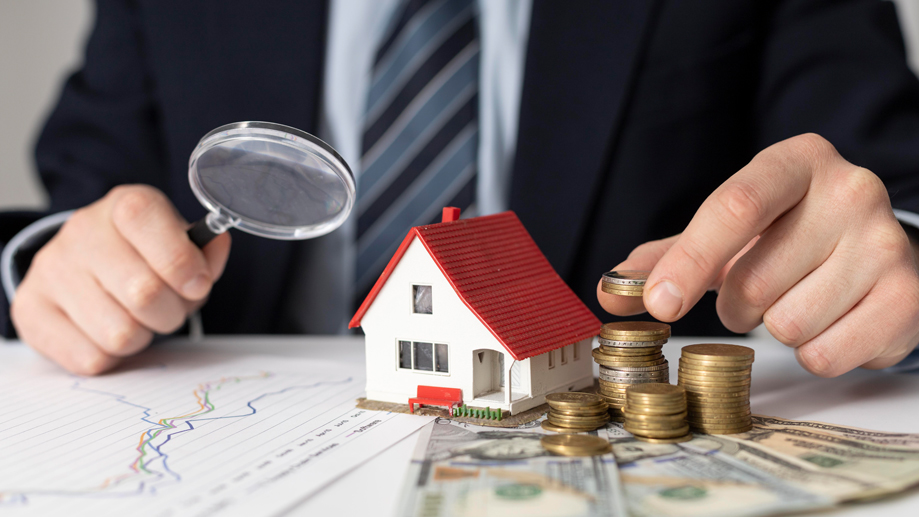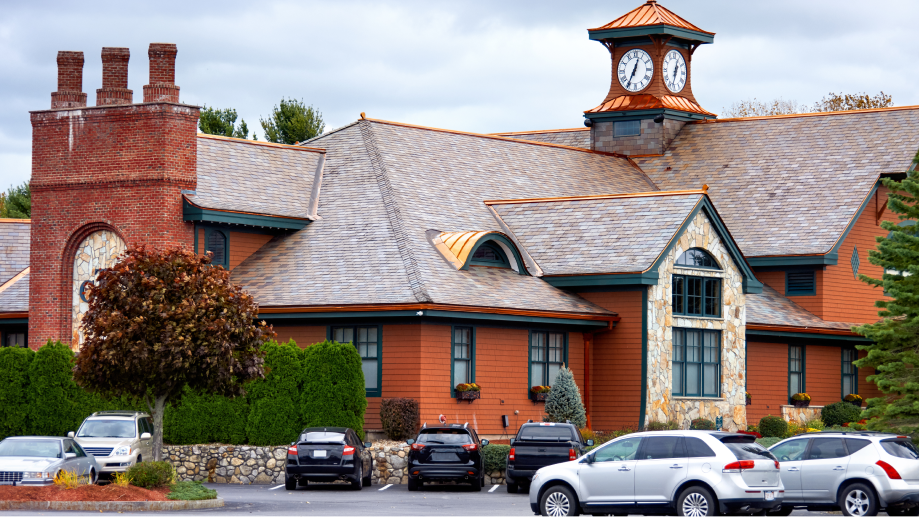Live and thrive in residential societies

Live and thrive in residential societies Residential Societies in New Zealand: The Complete Picture Residential societies in New Zealand are all the buzz now. They have emerged as vibrant communities full of life and connections. As urban areas expand and evolve, residential societies come with their set advantages and challenges. The Benefits of Residential Societies 1. Strong Community Bonds One of the standout benefits of residential societies is the sense of community they foster. In these neighbourhoods, you gain friendly faces and supportive neighbours, while in other urban spaces, anonymity permeates. Regular community events — festive barbecues, lively markets or seasonal celebrations — draw residents together, forging bonds that enhance the overall living experience. 2. Enhanced Security Safety is another compelling reason many choose residential societies. With features like gated entrances, surveillance systems and carefully monitored access, these communities provide an added layer of security that can be reassuring for families with young children or older residents. You experience lower crime rates and peace of mind in your daily life. In a chaotic world, the reassuring environment of a well-organized residential society can be invaluable. 3. Sustainable Living Meanwhile, many of these communities strongly emphasize sustainability and eco-friendly living. Thoughtfully designed homes often showcase energy-efficient technologies, communal gardens and shared green spaces. For environmentally conscious individuals and families, this focus on sustainable practices reduces their ecological footprint and offers potential savings on utility bills. Considerations Before Joining 1. Higher Initial Costs Nevertheless, residential societies come with certain drawbacks that deserve careful consideration. One prominent concern is the initial investment required to purchase a property within such communities. Typically, prices in residential societies can be higher than comparable homes in more traditional neighborhoods. 2. Community Regulations Additionally, the regulations and bylaws that govern residential societies could be confining. Each community has rules regarding home modifications, landscaping choices, and even pet ownership. While these regulations are for the greater good, they can frustrate you when you wish to personalize your space. Disputes may arise between residents and the governing bodies over what is permitted, sometimes leading to tension within the community. 3. Ongoing Fees Another drawback lies in the ongoing maintenance fees for living in these communities. To maintain shared spaces and community services, you must pay monthly or annual fees, which can add financial strain if they climb unexpectedly. Making the Right Choice In conclusion, residential societies in New Zealand present a beautiful mix of community spirit, safety and sustainability, making them an appealing choice for many seeking a fulfilling living experience. As the property landscape evolves, prospective residents must weigh these factors carefully, ensuring their choice aligns with their lifestyle, values and aspirations. Who better than OAKS property managers to guide you through your decision-making about whether a residential society is the right choice for you? 📞 Call 0800 888 223 or 📧 email enquiries@oaksproperty.co.nz for expert advice. News Latest News Feeds All Posts Live and thrive in residential societies June 10, 2025Read More Let’s do up your commercial property June 9, 2025Read More Making body corporates function better June 6, 2025Read More
Let’s do up your commercial property

Let’s do up your commercial property Maximizing Commercial Property Value Through Strategic Upkeep Upkeep of your commercial property goes beyond strategic management, enhancing profitability and visibility. Property owners and managers must adopt innovative approaches prioritising efficiency, sustainability and aesthetic appeal in a constantly evolving market. How Can You Enhance Your Commercial Property? 1. Proactive Maintenance Regular inspections and proactive maintenance are the backbone of effective property management. Ensure your property managers address minor issues before they escalate into costly repairs while securing tenant satisfaction. 2. Curb Appeal Matters Because first impressions matter — common areas such as lobbies and hallways should be immaculate and inviting. You can invest in attractive landscaping, clear signage, and bright lighting to elevate your property’s visual appeal and attract more people. 3. Go Green Energy efficiency is another transformative factor that can greatly impact profitability while promoting sustainability. With New Zealand’s focus on environmentally responsible practices, properties with energy-efficient systems — like LED lighting and smart HVAC — can significantly lower operational costs. Moreover, properties with green certifications attract eco-conscious tenants, offering a competitive edge. So, conduct energy audits and upgrade outdated systems to showcase a commitment to sustainability and enhance property appeal. 4. Digital Presence Along with physical maintenance, a robust online presence is imperative. An updated website featuring high-quality images, engaging descriptions, and virtual tours can significantly attract interest. An effective search engine optimization strategy can also help you achieve higher rankings in online searches, thus reaching a broader pool of potential tenants. Social media platforms, such as Instagram and LinkedIn, provide excellent avenues for showcasing property features and engaging with prospective clients. 5. Community Engagement Community engagement is another effective strategy for boosting visibility. You can organise events such as workshops and exhibitions to allow properties to connect with the locals and create lasting impressions. Collaborations with local businesses can amplify these efforts, creating opportunities for word-of-mouth referrals that boost community interest. Additionally, building relationships with local influencers can enhance exposure and credibility. 6. Health & Safety Focus Health and safety considerations are essential, and ensuring compliance with health guidelines and providing sanitation stations fosters trust among potential tenants. You must ensure regular evaluations and transparent communication regarding health protocols to signal a commitment to tenant welfare, further enhancing property appeal. 7. Flexible Leasing Offering flexible leasing options can attract a wider variety of businesses. As hybrid working models become more prevalent, if you provide adaptable workspaces for short-term rentals, it can appeal to startups and freelancers seeking dynamic environments. This flexibility can boost occupancy rates significantly, maximizing revenue potential in today’s market. 8. Market Responsiveness Lastly, being attuned to market demands is essential for maintaining profitability. You can conduct thorough market research to understand tenant needs and inform strategic property adjustments. Regular feedback from tenants helps property managers enhance satisfaction and retention, ensuring the property remains attractive in a changing landscape. The Path to Long-Term Success A comprehensive approach mentioned here helps property owners gain greater profitability and respect. In a competitive environment, prioritizing visibility and tenant satisfaction will be key to achieving long-term success and growth. Transform Your Space and Boost Its Value Today 📞 Call 0800 888 223 or 📧 email enquiries@oaksproperty.co.nz for expert renovation advice. News Latest News Feeds All Posts Let’s do up your commercial property June 9, 2025Read More Making body corporates function better June 6, 2025Read More Banks go for interest rate cuts June 5, 2025Read More
Making body corporates function better

Making body corporates function better Body corporates manage shared property in New Zealand, especially for apartments, townhouses, and other multi-unit developments. They promote cooperation and upkeep of common areas. Yet several issues affect their effectiveness and frustrate homeowners and tenants. Understanding these issues can improve the living experience. Communication Woes Body corporates struggle with transparency and communication. Sometimes, body corporate management may exclude owners from decision-making processes, leading to trust issues. For example, meetings may not be publicized, reports may not be readily shared and a small group may make essential decisions that feel arbitrary to the rest of the community. A clear communication route, such as regular newsletters, open meetings and minutes of decision-making, can make an owner feel informed and valued. Transparency fosters a sense of community, and when homeowners feel included in the management process, it can lead to better support. Money Matters Financial management is another significant concern. Body corporates collect levies from members to fund maintenance, repairs and improvements to shared facilities. However, disputes over levy increases or financial mismanagement can lead to animosity within the community. Ensure your body corporate’s financial health while maintaining transparent budgeting processes. Regular financial reports should be provided in clear, uncomplicated terms so that all members understand how funds are utilized. Involving all owners in financial discussions and decisions makes them feel more invested in the community’s wellbeing and reduces grievances over rising costs. Usage Disputes Disagreements over common property usage and maintenance responsibilities are common in body corporates. Owners may have differing opinions on necessary repairs or improvements and how these should be prioritized. Establish a committee of volunteer owners who represent diverse interests and concerns related to the shared property. This committee would facilitate discussions on maintenance concerns and work towards finding a consensus before escalating issues to the larger body corporate. This approach helps in conflict resolution and fosters harmonious relationships within the community. Moreover, differing attitudes towards community living can create tension within a body corporate. Some residents prefer a more active involvement in communal events and decisions. In contrast, others may choose to maintain a distance and enjoy the privacy of their unit. Appointing a range of engagement opportunities can be beneficial in creating an inclusive environment that respects these varying preferences. Body corporates also face conflicts over property modifications that often leave owners discontented. For instance, one owner may want to make significant changes or renovations, which could affect shared spaces’ overall aesthetics or functionality. The best way forward is to have clear guidelines about alterations to common areas or how individual units may be modified. These policies should be developed with input from all owners, focusing on maintaining the overall integrity of the community while allowing some level of personalized expression within individual units. Safety and Security Safety and security concerns also frequently arise in body corporates. Whether dealing with vandalism, petty theft, or more significant safety concerns, these situations can substantially impact the community’s quality of life. Establishing a collaborative approach to safety — such as forming neighborhood watch programmes or organising community patrols — can deter crime while fostering a sense of unity among residents. Making It Work Ultimately, the effectiveness of body corporates in New Zealand hinges on successful collaboration, effective communication, and a commitment to inclusivity. By acknowledging and addressing the many issues that arise while striving for compromise, communities can foster a respectful, peaceful, and enjoyable environment for all residents. To find out more about body corporates in Auckland and Hamilton, contact OAKS Property Management today. 📞 Reach out to our Auckland team at 0800 888 223 or 📧 enquiries@oaksproperty.co.nz for tailored solutions. News Latest News Feeds All Posts Making body corporates function better June 6, 2025Read More Banks go for interest rate cuts June 5, 2025Read More How the Reserve Bank’s OCR cut impacts the property market June 4, 2025Read More
Banks go for interest rate cuts

Banks go for interest rate cuts The Reserve Bank’s decision to slash the official cash rate (OCR) by 50 basis points has prompted major banks to cut their interest rates. While this move aims to relieve borrowers, some economists warn that the Reserve Bank may be cutting rates too aggressively. How Banks Responded to the Rate Cut ANZ ANZ has reduced its floating home loan rate to 6.89% for new loans and for existing borrowers. Fixed rates have also dropped, with reductions ranging from 10 basis points for a six-month fixed term to 45 basis points for a two-year term. The new special rates include: One-year special: 5.29% Two-year fixed: 4.99% Grant Knuckey, managing director for personal banking at ANZ, highlighted that most customers with fixed rates above 6% will benefit from lower rates when they refix later this year. Westpac Westpac has adjusted its rates as follows: One-year fixed: 5.49% (-5 basis points) Four-year fixed: 5.99% (-10 basis points) Five-year fixed: 5.99% (-20 basis points) However, the bank has discontinued its three-year special rate of 4.99%. Westpac’s General Manager of Product, Sarah Hearn, noted that the rate cuts would financially relieve homeowners. Kiwibank Kiwibank is passing the complete OCR reduction to its floating home loan rates, now 6.75%. The new rates are in effect. ASB ASB is also passing on the complete reduction, bringing its floating home loan rate to 6.89%. ASB has cut its variable rates by nearly 2% over the past six months. Additionally, some savings rates will also be reduced. BNZ BNZ has adjusted its floating rates as follows: Standard variable home loan rate: 6.94% TotalMoney, Mortgage One, and Rapid Repay rates: 7.04% Mixed Views From Economists Gareth Kiernan, Infometrics’ chief forecaster, cautioned that the Reserve Bank may be ignoring signs of economic recovery and inflation risks by cutting rates too aggressively. He predicted further downward pressure on fixed mortgage rates, with another 25 basis points reduction possible soon. On the other hand, Kiwibank’s Chief Economist, Jarrod Kerr, believes more cuts are necessary. He argues that with unemployment rising and inflation stabilizing, interest rates should drop further to stimulate economic activity. Kelvin Davidson, Chief Property Economist at CoreLogic, advises borrowers to manage expectations. Although some interest rate reductions are expected, they may not be as large as anticipated. Banks were already lowering rates ahead of this decision. With global uncertainties persisting, Davidson noted, there may soon be a shift back toward longer-term fixed rates. What Should Borrowers Do? The Finance and Mortgage Advisers Association of New Zealand urges borrowers to ensure they benefit from the rate cuts. They advise that if banks do not reduce repayments, customers should contact their lender or consider refinancing with the help of a mortgage adviser. Country Manager Leigh Hodgetts said that as competition among banks increases, more rate cuts can be expected in 2025. The time could be right for borrowers to lock in lower mortgage costs and ease financial strain amid the changing economic landscape. Speak to Our Experts Today 📞 0800 888 223 | 📧 enquiries@oaksproperty.co.nz News Latest News Feeds All Posts Banks go for interest rate cuts June 5, 2025Read More How the Reserve Bank’s OCR cut impacts the property market June 4, 2025Read More Evaluate your property wisely June 3, 2025Read More
How the Reserve Bank’s OCR cut impacts the property market

How the Reserve Bank’s OCR cut impacts the property market RBNZ Cuts OCR to 3.75%: What It Means for NZ Property Market The Reserve Bank of New Zealand (RBNZ) has announced a 50 basis point cut to the Official Cash Rate (OCR), bringing it down to 3.75%, the lowest level since October 2022. It marks the third consecutive major reduction to stimulate economic activity. While this move could help borrowers, its impact on New Zealand’s real estate market remains to be seen. Oaks Property Management is closely watching these changes and their effects on property investment, homeownership, and rental markets. A cautious response With the OCR cut, several big retail banks, including ASB, BNZ, Westpac, Kiwibank, and Co-op Bank, have reduced their floating mortgage rates. However, most fixed-term mortgage rates remain unchanged, indicating that banks are cautious about committing to long-term lower rates. Meanwhile, the OCR reduction could mean lower mortgage repayments, making homeownership more accessible. Moreover, borrowing costs may also boost the demand for properties. Outlook for investors and rental market The slashing of OCR may be an opportune moment for property investors to expand their portfolios, particularly those leveraging mortgage financing. Reduced interest rates could improve rental yield calculations, making investment properties more attractive. However, investors should remain mindful of external factors, including potential economic volatility and evolving rental demand. Meanwhile, the impact of the OCR cut on the rental market is mixed. Owners with mortgages may experience some relief in mortgage payments, leading to more stability in rental pricing. Yet, tenants may not see immediate benefits, as rental prices are influenced by broader economic factors, including supply, demand, and local employment trends. Given the rising unemployment rate and cautious economic outlook, rental demand could fluctuate. For property managers like Oaks Property Management, the key focus will be maintaining occupancy rates and ensuring rental properties remain competitive in pricing and quality. What does the future hold? The RBNZ’s move aims to stimulate economic growth. However, uncertainty in the global economy could influence long-term market stability. While the central bank has hinted at further OCR reductions throughout 2025, it remains cautious about the speed and extent of these cuts. Should you buy, sell, or hold? Homebuyers: If you’ve been considering purchasing a home, now is an ideal time to explore mortgage options while rates remain low. Investors: This could be a strategic moment to acquire rental properties, provided you carefully assess market conditions and financing options. Current homeowners: You might see repayment reductions if you have a floating mortgage. However, if you’re on a fixed rate, consider refinancing opportunities to capitalize on future cuts. What does OAKS Property Management think? The Reserve Bank’s latest OCR cut presents opportunities and challenges across New Zealand’s property sector. Understanding the implications of these changes is crucial to making informed property decisions, whether you’re a homebuyer, investor, or tenant. At Oaks Property Management, we are committed to guiding you through these evolving market conditions, ensuring that homeowners, investors, and tenants maximize the benefits of a changing financial landscape. If you have questions about how these changes might affect your property strategy, contact our team today! 📞 Call 0800 888 223 or 📧 email enquiries@oaksproperty.co.nz for expert guidance. News Latest News Feeds All Posts How the Reserve Bank’s OCR cut impacts the property market June 4, 2025Read More Evaluate your property wisely June 3, 2025Read More Know when your property becomes high value June 2, 2025Read More
Evaluate your property wisely

Evaluate your property wisely Do you know how much your property is worth? Getting your property valuation right is essential for buyers and sellers alike, especially in a dynamic real estate market like Auckland. It can help you make informed decisions about renovating or refinancing. Property valuation determines the present property value as professionals asses the property on specifications. Location, size, condition, interest rates, rentals, demand, amenities, recent sales of similar properties in the area and market trends are key factors. Accurate valuations help set fair selling prices, secure loans, assess tax liability and more. You will neither overpay for a property nor undersell that you own. Different types of valuation It’s crucial to know different methods of valuation and to take the responsibility of choosing the one that best suits your needs: Real estate valuation: Different tools are available online that can offer property estimates based on recent sales data and market trends. They are a good place to start, but they are not comprehensive. Government valuation or rateable value: Your property’s rateable value (RV) is available with your local council or website. RV is a guideline, primarily for property taxes, and might not reflect the present market value of your property. Registered valuation Hire a registered valuer for an accurate valuation. The person will thoroughly inspect the property and give you a comprehensive report on its value. This helps with significant investment decisions. Other methods include: Income method: Rental properties help calculate their value based on the income they generate. The valuation involves assessing the rental income and subtracting expenses to determine its net operating income. Cost method: Here, the value is based on the cost of rebuilding the property, including the land price and the cost of constructing a similar building. Every valuation method has pros and cons, so choose the more suitable method after extensive research. It’s worth noting that even artificial intelligence can now assist with property valuation, using large datasets to estimate property values. With so many factors in play, consider using one or a combination of these methods to assess your property’s value wisely. Need to assess your property’s worth accurately? 📞 Call our Auckland team on 0800 888 223 or 📧 email enquiries@oaksproperty.co.nz News Latest News Feeds All Posts Evaluate your property wisely June 3, 2025Read More Know when your property becomes high value June 2, 2025Read More Pets – what works for owners and tenants May 30, 2025Read More
Know when your property becomes high value

Know when your property becomes high value We invest in property and expect good returns — either as high-yielding rentals or as high-value investments. Let’s quickly understand what factors can drive our property’s increase in worth. Experts from OAKS property management in Auckland can help you understand the capital growth market even better. Here are some important pointers: Location: Where you pick up your house is a crucial decision — not only the locality, but also the region plays an important part. Let’s say you pick up an affordable property in an undervalued region, and your property’s value will likely increase when the market corrects. So, ensure you have locked in your location with all the necessary information. Property type: The type of property you choose can significantly impact your investment returns. Whether it’s an individual house, an apartment, or a townhouse, each has its potential. Lifestyle properties are also a significant addition bringing with it a fine balance between investment and lifestyle. You can access recreational facilities, such as swimming pools, gymnasiums and more, which may match your interests and hobbies. Houses and townhouses are often favored for capital growth, while apartments can be a smart choice for rental yield. Property size: Sometimes, even the size of the property matters. For example, the land you own around your house, the number of bedrooms, and similar factors can make your property attractive. Population growth: Where there’s activity, there’s growth. When a region experiences a surge in population, it’s a clear sign of a flourishing capital market. Be aware of this trend and capitalize on the market’s potential. These are just a few signs that could push the value of your property higher, yet many factors play a critical role in keeping demand and value high. Seek out the expertise of property managers to make the right decision for you. OAKS Property Management Limited is the professional you are looking for. Thinking of selling or reinvesting? Know the right time. Speak with our Auckland property experts at 0800 888 223 or enquiries@oaksproperty.co.nz News Latest News Feeds All Posts Know when your property becomes high value June 2, 2025Read More Pets – what works for owners and tenants May 30, 2025Read More Choose between residential and commercial property – Invest wisely May 29, 2025Read More
Pets – what works for owners and tenants

Pets – what works for owners and tenants The joy, laughter, affection and care pets bring into some of our lives are irreplaceable. Some pets even double up as working animals trained specially to help people with disabilities, making them an integral part of a family. As an owner, when you decide to rent your place, you must discuss all the conditions regarding the tenants’ having or bringing in a pet before the tenancy begins. Remember to place reasonable conditions that tenants must follow to avoid damage to your property, which the pets may cause. All conditions must be agreed upon by both the owner and the tenant and included in the tenancy agreement. If yours is a unit title, there may be restrictions on keeping pets in your body corporate, so ensure you check the rules before giving your tenant a go-ahead. Many body corporates have regulations around the number of pets allowed per apartment. Pet type and size may also be necessary, as certain breeds may be more welcome than others. As an owner, you must seek permission before a pet moves in. In early 2024, the New Zealand government announced that owners could soon charge an additional pet bond due to an amendment to the Residential Tenancy Act. With this change, tenants can be liable for pet damage that is more than the usual wear and tear of the house. With the introduction of pet bonds, it is believed that more owners will be willing to accept pets. What’s more, even for owners, tenants are likely to pay a premium for a safe home and willingly stay longer. We have explored what owners must do and how they can benefit; as a tenant, what do you have to look out for? Always keep your owner informed if you are planning on bringing in a pet Prioritize your pet’s safety and pet-proof the home Ensure tenancy agreement terms are followed Look into pet bond legislation Both renting your home to a family with pets and moving into a home where pets are welcomed come with challenges. Yet, when the owner and tenant are clear about the conditions and expectations, it can be a long and fulfilling partnership. Whether you’re a pet-loving tenant or a cautious landlord, we’ve got the answers. Reach out today at 0800 888 223 or email enquiries@oaksproperty.co.nz News Latest News Feeds All Posts Evaluate your property wisely June 3, 2025Read More Know when your property becomes high value June 2, 2025Read More Pets – what works for owners and tenants May 30, 2025Read More
Choose between residential and commercial property – Invest wisely

Choose between residential and commercial property – Invest wisely You have decided to buy a property as a part of your investment strategy, and now you may need some insight into what kind of property best suits you. Is it residential or commercial? Let’s look into different opportunities and challenges in residential and commercial property investment. When you invest in a residential property, you may have to bring in only 10 – 30% of the loan-to-value ratio (LVR), making it easier to finance not just from traditional banks but also enabling you to explore other lending options. Meanwhile, commercial properties require a larger initial investment, where you would have to invest 50 – 65% of the LVR. Also, financing for commercial properties tends to be more complex, with strict criteria such as higher credit score requirements, larger down payments and detailed business plans. A residential property is governed under the Residential Tenancies Act, which helps ensure standards for healthy homes, smoke alarms, application process, background, reference and credit checks, rent increases and more. When you invest in residential property, you gain a steady rental income. Regardless of how the economy is performing, there’s always a demand for homes, which makes residential investment more stable. On the other hand, commercial properties yield higher rentals and long-term tenancy, providing substantial cash flow. Yet, there’s a flip side: the demand for commercial spaces rises when the economy is thriving and nosedives when there is a downturn, leading to some volatility. When you rent commercial property, the tenants mostly manage the maintenance, insurance, and related expenses. This reduces your burden, unlike with residential properties, where you, as the owner, are responsible for the overall maintenance of the home. These factors elucidate the differences between investing in residential and commercial property. At OAKS Property Management, our experts can guide you on the pros and cons of investing in the respective sectors. With our expert advice, you can feel confident and supported in making your investment decisions. Get the help you deserve and choose wisely. Need help choosing the right property investment? Call 0800 888 223 or email enquiries@oaksproperty.co.nz — we’ll guide you through every News Latest News Feeds All Posts Choose between residential and commercial property – Invest wisely May 29, 2025Read More Body corporates or resident societies – How do they work? May 28, 2025Read More Let’s do up your commercial property April 18, 2025Read More
Body corporates or resident societies – How do they work?

Body corporates or resident societies – How do they work? You have bought a dwelling, which could be your new home or an investment, and so starts your journey as a homeowner. When you buy a multi-unit apartment or a row house, you share common areas—driveways, walls, amphitheatres, swimming pools, or green spaces—with your neighbours. You need rules to govern and maintain these common areas, and that’s where a body corporate or a resident society comes in. Understanding Body Corporates and Resident Societies Body Corporates: The Established System Body corporates have been part of the New Zealand property management space for a long time. They were created as part of the Unit Titles Act 2010. In a body corporate, when you buy an apartment or multi-unit apartment, the land underneath the building is owned collectively. It covers exterior building maintenance and is deemed more expensive due to additional responsibilities and legalities. Resident Societies: The Modern Alternative Resident societies are more recent and common when you buy townhouses. Here, you own the land beneath your property and co-own common areas with your neighbours. The Incorporated Societies Act governs resident societies, which are responsible only for the upkeep of common areas and insurance payments. You will maintain your building. Membership and Financial Considerations How do you become a member? Body corporates are compulsory for multi-unit apartments, and when you buy a property from a developer, you automatically become part of the resident society that’s set up. In a resident society, you are likely to incur lower costs. By paying your insurance through the society, you could save more because you buy your insurance policy as a group and can enjoy a group discount. Comparing Responsibilities Things work differently for a body corporate because it has more responsibilities and provides more services. If your body corporate owns the outside of an apartment block, it ensures that it’s fully maintained. You will not have the hassle of doing it personally; instead, you pay a fee towards the maintenance. Resident societies were created primarily to protect and enhance the value of the property, so the common areas are always looked after. Any structural changes will require the owners to step in. However, body corporates charge a heftier fee yet handle all the maintenance and attend to the smallest details. Current Market Trends In the present scenario, with growing housing density and demand for better amenities, resident societies are on the rise. As a home buyer, it’s crucial to research thoroughly and factor in the costs associated with being part of a resident society or body corporate before you decide on what home to buy. Professional Management Solutions Want expert help managing your body corporate or resident society? 📞 Call us at 0800 888 223 or 📧 email enquiries@oaksproperty.co.nz for tailored advice. News Latest News Feeds All Posts Body corporates or resident societies – How do they work? May 28, 2025Read More Let’s do up your commercial property April 18, 2025Read More Live and Thrive in Resident’s Societies April 18, 2025Read More
Let’s do up your commercial property

Let’s Do Up Your Commercial Property Upkeep of your commercial property goes beyond strategic management, enhancing profitability and visibility. Property owners and managers must adopt innovative approaches prioritizing efficiency, sustainability, and aesthetic appeal in a constantly evolving market. How Can You Go About This? Maintenance Matters Regular inspections and proactive maintenance are the backbone of effective property management. Ensure your property managers address minor issues before they escalate into costly repairs while securing tenant satisfaction. Curb Appeal Counts Because first impressions matter — common areas such as lobbies and hallways should be immaculate and inviting. You can invest in attractive landscaping, clear signage, and bright lighting to elevate your property’s visual appeal and attract more people. Go Green Energy efficiency is another transformative factor that can greatly impact profitability while promoting sustainability. With New Zealand’s focus on environmentally responsible practices, properties with energy-efficient systems — like LED lighting and smart HVAC — can significantly lower operational costs. Moreover, properties with green certifications attract eco-conscious tenants, offering a competitive edge. So, conduct energy audits and upgrade outdated systems to showcase a commitment to sustainability and enhance property appeal. Stay Online Along with physical maintenance, a robust online presence is imperative. An updated website featuring high-quality images, engaging descriptions, and virtual tours can significantly attract interest. An effective search engine optimization strategy can also help you achieve higher rankings in online searches, thus reaching a broader pool of potential tenants. Social media platforms, such as Instagram and LinkedIn, provide excellent avenues for showcasing property features and engaging with prospective clients. Engage Communally Community engagement is another effective strategy for boosting visibility. You can organise events such as workshops and exhibitions to allow properties to connect with the locals and create lasting impressions. Collaborations with local businesses can amplify these efforts, creating opportunities for word-of-mouth referrals that boost community interest. Additionally, building relationships with local influencers can enhance exposure and credibility. An Extra Mile Health and safety considerations are essential, and ensuring compliance with health guidelines and providing sanitation stations fosters trust among potential tenants. You must ensure regular evaluations and transparent communication regarding health protocols to signal a commitment to tenant welfare, further enhancing property appeal. Flexibility Wins Offering flexible leasing options can attract a wider variety of businesses. As hybrid working models become more prevalent, if you provide adaptable workspaces for short-term rentals, it can appeal to startups and freelancers seeking dynamic environments. This flexibility can boost occupancy rates significantly, maximizing revenue potential in today’s market. Meet the Demands Lastly, being attuned to market demands is essential for maintaining profitability. You can conduct thorough market research to understand tenant needs and inform strategic property adjustments. Regular feedback from tenants helps property managers enhance satisfaction and retention, ensuring the property remains attractive in a changing landscape. A comprehensive approach mentioned here helps property owners gain greater profitability and respect. In a competitive environment, prioritizing visibility and tenant satisfaction will be key to achieving long-term success and growth. Professional Property Management Solutions Navigating the complexities of commercial property investment and management has become increasingly challenging, especially in the dynamic post-COVID landscape. Without the right expertise, managing these complexities can be overwhelming. At Oaks Property Management, we specialize in both residential and commercial property management, ensuring your investment is in experienced hands. Choosing Oaks means benefiting from meticulous property care, optimized rental income, and maintained asset value. With our ISO9001-certified standards, we provide comprehensive management solutions tailored to enhance your investment focus and maximize long-term returns. News Latest News Feeds All Posts Let’s do up your commercial property April 18, 2025Read More Live and Thrive in Resident’s Societies April 18, 2025Read More Making body corporates function better April 18, 2025Read More
Live and Thrive in Resident’s Societies

Live and Thrive in Resident’s Societies Resident’s societies in New Zealand are all the buzz now. They have emerged as vibrant communities full of life and connections. As urban areas expand and evolve, Resident’s societies come with their set advantages and challenges. The Benefits of Resident’s Societies Strong Community Bonds One of the standout benefits of Resident’s societies is the sense of community they foster. In these neighbourhoods, you gain friendly faces and supportive neighbours, while in other urban spaces, anonymity permeates. Regular community events — festive barbecues, lively markets, or seasonal celebrations — draw residents together, forging bonds that enhance the overall living experience. Enhanced Safety Safety is another compelling reason many choose Resident’s societies. With features like gated entrances, surveillance systems, and carefully monitored access, these communities provide an added layer of security that can be reassuring for families with young children or older residents. You experience lower crime rates and peace of mind in your daily life. In a chaotic world, the reassuring environment of a well-organized Resident’s society can be invaluable. Sustainable Living Meanwhile, many of these communities strongly emphasize sustainability and eco-friendly living. Thoughtfully designed homes often showcase energy-efficient technologies, communal gardens, and shared green spaces. For environmentally conscious individuals and families, this focus on sustainable practices reduces their ecological footprint and offers potential savings on utility bills. Considerations Before Joining Higher Initial Investment Nevertheless, Resident’s societies come with certain drawbacks that deserve careful consideration. One prominent concern is the initial investment required to purchase a property within such communities. Typically, prices in Resident’s societies can be higher than comparable homes in more traditional neighbourhoods. Community Regulations Additionally, the regulations and bylaws that govern Resident’s societies could be confining. Each community has rules regarding home modifications, landscaping choices, and even pet ownership. While these regulations are for the greater good, they can frustrate you when you wish to personalize your space. Disputes may arise between residents and the governing bodies over what is permitted, sometimes leading to tension within the community. Ongoing Maintenance Fees Another drawback lies in the ongoing maintenance fees for living in these communities. To maintain shared spaces and community services, you must pay monthly or annual fees, which can add financial strain if they climb unexpectedly. Making the Right Choice In conclusion, Resident’s societies in New Zealand present a beautiful mix of community spirit, safety, and sustainability, making them an appealing choice for many seeking a fulfilling living experience. As the property landscape evolves, prospective residents must weigh these factors carefully, ensuring their choice aligns with their lifestyle, values, and aspirations. Who better than OAKS property managers to guide you through your decision-making about whether a Resident’s society is the right choice for you? Contact OAKS today! How OAKS Assists Developers in Incorporating a Resident’s Society (RSI) Property developers often need expert assistance in establishing and transitioning a Resident’s Society Incorporated (RSI) to ensure smooth governance, financial planning, and long-term property value protection. A professional property management company plays a crucial role in this process by providing strategic guidance, legal compliance, and operational management. Establishing the Resident’s Society (RSI) Structure Legal Registration & Documentation: Assisting in incorporating the RSI, drafting the constitution, and ensuring compliance with regulatory requirements (e.g., Incorporated Societies Act 2022 in NZ). Defining Governance Rules: Establishing operational rules, bylaws, and guidelines for property owners, tenants, and common area usage. Financial Planning & Budgeting Initial Budget & Levy Structure: Developing a financial model for the RSI, including forecasted maintenance costs, insurance, and contingency funds. Setting Up Bank Accounts & Financial Controls: Managing financial transactions, collecting levies, and ensuring proper financial reporting. Transitioning from Developer to Owner Control Phased Handover Management: Supporting the transition process as ownership shifts from the developer to the property owners. Owner Committee Formation: Facilitating elections for the residents’ committee and providing governance training. Ongoing Management & Compliance Common Area & Facility Maintenance: Ensuring proper upkeep of shared spaces, lifts, landscaping, and other amenities. Legal & Compliance Support: Managing compliance with local regulations, insurance requirements, and health & safety standards. Resident & Stakeholder Communication Establishing Effective Communication Channels: Setting up newsletters, portals, or meetings to keep residents informed about management decisions. Conflict Resolution & Mediation: Handling disputes among residents or between the RSI and property owners. Long-Term Asset Protection & Value Growth Capital Works Planning: Implementing long-term maintenance plans to protect the development’s infrastructure. Enhancing Market Appeal: Ensuring the property remains well-maintained, attractive, and valuable for future buyers and investors. How Oaks Property Management Can Assist At Oaks Property Management, we specialize in guiding developers through the entire RSI incorporation and management process. Our expertise ensures a seamless transition, effective governance, and long-term sustainability of the development. Would you like a customized strategy for a specific project? Contact us at enquiries@oaksproperty.co.nz News Latest News Feeds All Posts Let’s do up your commercial property April 18, 2025Read More Live and Thrive in Resident’s Societies April 18, 2025Read More Making body corporates function better April 18, 2025Read More
